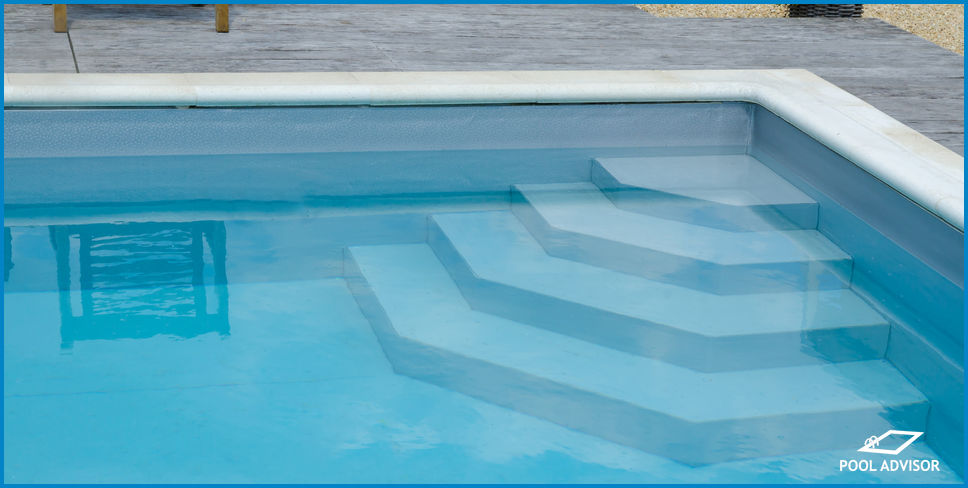
Magnesium / Mineral Pools - What Are The Pros & Cons?
Magnesium pools, sometimes referred to as mineral swimming pools, are a type of pool that is growing in popularity as an alternative to traditional chlorine or saltwater pools.
Although these pools are a novelty and have a variety of unique features compared to other pools, there are some mineral swimming pool disadvantages.
In this article we will discuss the pros and cons of magnesium pools and how these pools compare to traditional chlorine or saltwater pools. We also include information about magnesium pool problems you may encounter.
Benefits Of Magnesium Swimming Pools
Magnesium pools or mineral swimming pools contain dissolved magnesium, a mineral that is essential for proper bone, joint, and muscle health.
Swimming in a pool with a high concentration of magnesium in the water is said to have numerous health benefits, most of which you may already be familiar with if you are a fan of mineral soaks or epsom salt bubble baths.
Magnesium in pool water is absorbed in small amounts through your skin, and can provide relief for aching joints and soothe sore muscles.
Magnesium pool water is also known to be less drying for hair and skin than the water in traditional chlorine pools or saltwater pools, making these pools a great option for those with sensitive skin conditions such as eczema.
Magnesium is also a mineral that relieves stress. Swimming in a pool with magnesium can help your body better metabolise any cortisol it produces, leaving you feeling more relaxed after a swim.
Many scientific studies also suggest that increased levels of magnesium can improve people’s quality of sleep, which can be especially helpful for those with sleep disturbance disorders.
Taking mineral baths has been known to carry benefits throughout a large portion of human history. For thousands of years, people of different cultures have bathed in fresh mineral springs to reap the health benefits associated with mineral water, from Japanese onsen baths to communal bathing houses built during the Roman Empire.
With the increasing popularity of mineral water pools, you can now create a tranquil swimming environment at your own home to reap the positive effects of this experience.
Indeed, many pool owners have said that they are interested in converting their saltwater pool to a mineral pool.
Mineral Swimming Pool Disadvantages
One disadvantage of magnesium pools or mineral swimming pools is that they still rely on chlorine molecules for sanitation.
In our opinion, this is not exactly a disadvantage as even saltwater pools rely on chlorine molecules, but it can be a drawback if you were expecting a way to escape the use of chlorine completely.
Another disadvantage of mineral swimming pools is that the water causes corrosion and related damage to most things it comes in contact with.
This includes the area surrounding your pool, including decking, concrete formations, and patio furniture, but also includes the equipment that keeps your pool operational, and even extends to swimsuits.
Although the amount of corrosion and related wear from a mineral pool is still likely less than that of saltwater pools, you are still more prone to experiencing corrosion with this type of water than from traditional chlorine pools.
One final downside of mineral pools is that they are especially high maintenance, requiring both lots of attention and lots of money for proper upkeep.
A large portion of this money spent maintaining the pool comes from the costs associated with the bags of mineral salts, which you will need to purchase and continually add to your pool in order to maintain adequate levels of mineralisation.
Most magnesium or mineral water pools are paired with an ozone-equipped sterilisation unit, which uses ozone gas as the primary oxidizer organic particles in your water.
If an ozone system is used in combination with a mineral pool system, your chlorine consumption will be greatly reduced, but will still not be zero.
Just like other pool types, magnesium pools require that you regularly test your water chemistry to ensure that you are maintaining adequate amounts of sanitizers, mineral content, and other water perimeters.
The mineral content in a mineral pool typically ranges from 3,500 - 4,500 parts per million (ppm), but other amounts may be required by your mineral enhancing system.
Conclusion
Mineral water pools are a luxurious alternative to saltwater pools. They offer more mineral-related health benefits than traditional chlorine or saltwater pools.
Although the upkeep costs for magnesium pools are known to be slightly higher than those associated with saltwater or traditional chlorine pools, the added perks of improved relaxation and muscle/joint health benefits are worth the tradeoff for many.
Do you have any questions about mineral or magnesium swimming pools? Get in touch with us in the comments, we’d love to help!

Louis
A chemical engineer by trade, Louis is committed to debunking myths in the pool industry by explaining the underlying chemistry and making it accessible to all.
